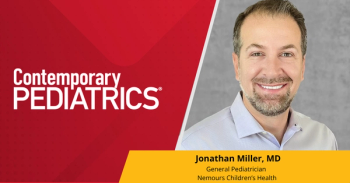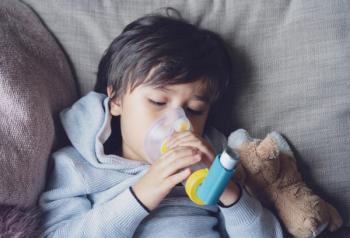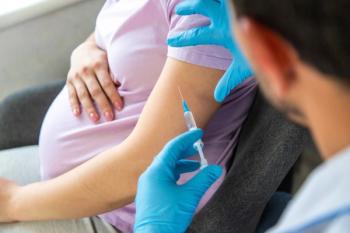
Explore the latest advancements in STI screening and management, focusing on pediatric care and the critical role of early detection in newborns.

Explore the latest advancements in STI screening and management, focusing on pediatric care and the critical role of early detection in newborns.

C. Buddy Creech, MD, MPH, highlights advances in mRNA, monoclonals, adjuvants, and mucosal vaccines, stressing safety and parent communication.

From another potential treatment for pediatric atopic dermatitis, to STI therapy for uncomplicated urogenital gonorrhea, take a look ahead at key PDUFA dates in Q4.

Pediatricians can use structured visits, rating scales, and AAP guidelines to improve ADHD diagnosis, follow-up, and care coordination.

Decline in maternal smoking linked to fewer US newborns with gastroschisis, highlighting benefits of public health efforts.

Over half of youth firearm suicides involved a parent’s gun, with most stored unlocked and loaded, underscoring the need for secure storage.

Pediatric flu deaths underscore risks for healthy children and highlight importance of annual vaccination and early recognition.

Mothers with multiple adverse childhood experiences faced double the risk of preterm birth, highlighting intergenerational health effects.

Youth suicides by sodium nitrite/nitrate are rising, highlighting prevention gaps and opportunities for early medical and public health intervention.

Federal backup camera mandate cut pediatric backover injuries and deaths, though risks remain for children in older vehicles without cameras.

Nearly 1 in 4 children with firearm injuries had prior ED visits for crashes or violence, highlighting opportunities for early intervention.

FDA approves guselkumab as the first IL-23 inhibitor for children 6 years or older with plaque psoriasis or psoriatic arthritis.

Adolescent STIs are rising. Diane Straub, MD, MPH, stressed confidential care, routine screening, and balancing parental involvement at AAP 2025.

Early allergen introduction, beginning in infancy and sustained over time, can safely reduce food allergy risk, said David Stukus, MD, at AAP 2025.

Multidisciplinary care is key in evaluating and managing menstrual disorders in adolescents.

Most child health TikTok videos by non-medical eco-influencers contradicted guidelines, spreading vaccine and infant care misinformation.

The “Store it Safe” program improved suicide screening and firearm storage practices, engaging families, providers, and communities statewide.

Golf cart injuries among children are rising, with falls leading to head and neck injuries and a need for better safety guidelines.

Out-of-hospital births doubled during the pandemic, led by younger, educated mothers, raising concerns about maternal risks and infant outcomes.

Placing food outreach specialists in pediatric clinics improved food access, enrolling families in assistance programs and reducing barriers.

One in 5 TikTok sexual health videos by non-medical users contained misinformation, with abortion-related content showing the highest risks.

States with stronger gun laws, including red flag laws, show lower rates of pediatric in-home firearm homicides, study finds.

Post-pandemic middle schoolers gained sexual health knowledge but showed fewer positive belief changes, study finds.

New contraceptive options and counseling strategies aim to improve adolescent access and address patient-specific needs presentedat AAP 2025.

Universal screening during well visits improved asthma detection and revealed high rates of poor housing quality linked to asthma symptoms.

Hands-on menstruation education fosters confidence, reduces stigma, and equips adolescents with practical skills for menstrual health.

The approval expands on the previous indication of children 5 years and older with HoFH, approved in 2023.

EMS calls for opioid exposures are increasing among pre-teens, with younger children showing higher acuity than older adolescents.

COVID-19 vaccination in pregnancy reduced infection, stillbirth, and preterm birth risks without increased adverse maternal outcomes.

AAP 2025 heads to Denver with 10,000+ attendees, a keynote by Dr. Glaucomflecken, and 260+ sessions tackling top issues in pediatric care.